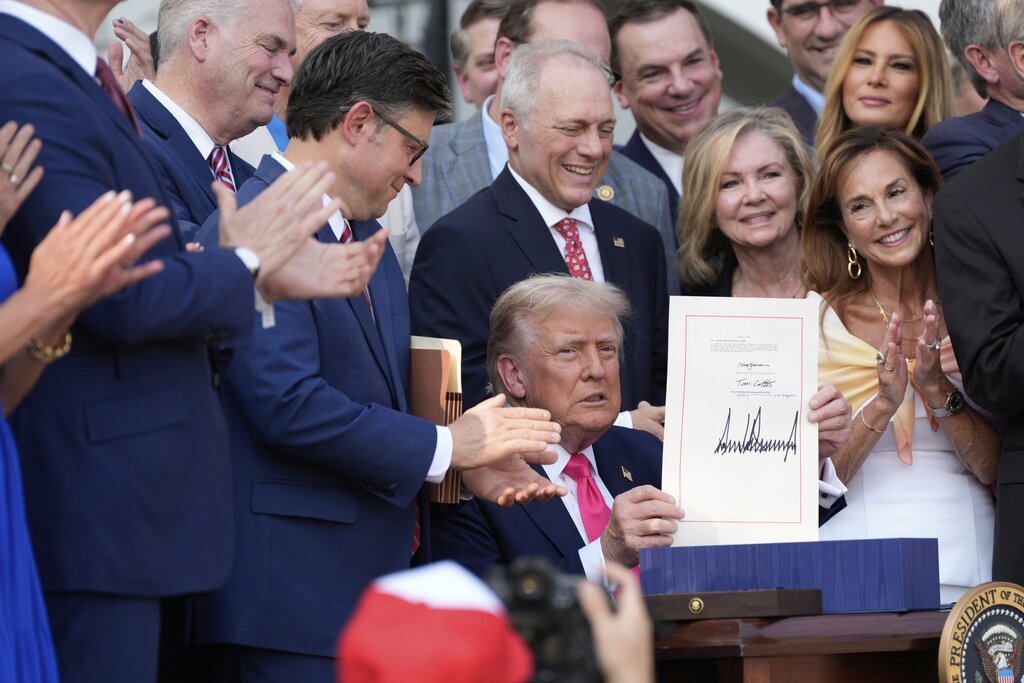
- Donald Trump’s One Big Beautiful Bill was approved and signed into law
- New tax deductions on losses will negatively impact bettors
- Nevada will introduce the FAIR BET Act to restore previous deduction limits
U.S. President Donald Trump signed into law the One Big Beautiful Bill (OBBB) on July 4. The bill includes numerous increases and decreases for federal spending over the next four years. However, the provision that is most notable for gamblers, and specifically professional gamblers, comes in the adjustment to how much bettors can deduct in losses from their taxes.
Big Beautiful Bill Lowers Tax Deductions on Gambling Losses
U.S. legal sports betting currently requires gamblers to report their end-of–year winnings and losses. The current tax code allows for a 100-to-100 percent deduction. Therefore, if a gambler won $100,000 and also lost $100,000, they would not owe any taxes.
However, the new tax provision in the Big Beautiful Bill, lowers the deduction amount to just 90%. In this scenario, the break-even gambler described above would only be able to deduct 90% of their losses. This in turn would require them to pay taxes on the remaining 10% of their gambling from the year. This, despite the fact that they did not actually win. This player would essentially be paying tax simply for the right to bet on sports, poker, and other popular casino games without even posting a profit.
To illustrate a few examples of possible tax scenarios, consider the following examples:
- Win $100k and lose $150k (-$50k result) = No tax owed
- Win $100k and lose $100k ($0 result) = Owe tax on $10k
- Win $100k and lose $50k (+$50k result) = Owe tax on $55k
The provision was added to the Senate bill by the U.S. Sen. Mike Crapo, R-Idaho. Crapo, and the Joint Committee on Taxation flagged excessive gambling loss deductions as a low hanging revenue which could raise an estimated $400 million a year.
Some sportsbooks may see the new provision as a positive as professional or “sharp” bettors who come out with profit at the end of the year may be pushed out. However, not all professional bettors win. Some lose. And those players may also choose to play elsewhere. Even average public bettors may be discouraged by the prospect of paying additional taxes should they get lucky and win. Therefore, they too could consider returning to offshore sportsbooks.
Nevada To Introduce FAIR BET Act
In response to the OBBB, Democratic Nevada Rep. Dina Titus has come out against the new tax provisions and plans to introduce the FAIR BET Act to reverse loss deductions back to 100%. She’s urging other members to join as well.
“This is just another attack on gaming and tourism and on districts like mine that rely on these industries.” — Democratic Nevada Rep. Dina Titus
“This is just another attack on gaming and tourism and on districts like mine that rely on these industries,” she Titus. “This also punishes people who are trying to do the right thing by reporting gambling on their taxes, pushing them towards offshore outlets and the predictions market, which unlike legitimate gambling sources, do not invest in bricks and mortar, pay state taxes, hire union labor, or contribute to problem gaming efforts.”
The new gambling tax laws will go into effect for 2026.








You must be logged in to comment. Don't have an account? Sign up today.